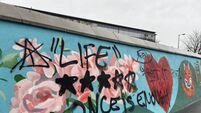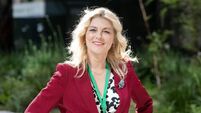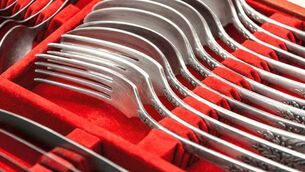Kildare woman one half of duo behind idyllic paradise in West Cork
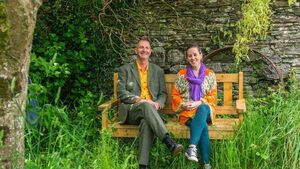
Vic Sprake and Deborah Ní Chaoimhe, Owners of Camus Farm and The Field Kitchen
A paradise of greenery, birdsong and culinary delights for all to enjoy. That’s the inviting description of West Cork’s award-winning Camus Farm and The Field Kitchen, nestled in the scenic countryside not far from Clonakilty.
Deborah Ní Chaoimhe – who grew up in Co Kildare – and Vic Sparke are the wife and husband duo behind the organic holding in the Rebel County. They bought the farm nearly 20 years ago, beautifully renovating three derelict stone barns from 1850 in which they raised their children and continue to live to this day.
Having spent years planting thousands of trees and nurturing the fields, the couple decided to open The Field Kitchen, sharing their passion for biodiversity, delicious high quality seasonal food and opening up their panoramic views of Clonakilty to diners and visitors from Easter to Christmas every year.
“We’d have groups who come in and do walks because the views up the top of the hill are stunning,” Deborah told the . “We very much work with other community groups as well to come in and explore nature and give talks about biodiversity and sustainability... you also get to have a lovely dinner obviously in The Field Kitchen!”
Deborah’s journey to this achingly beautiful part of the world has featured quite a few stops along the way. Her family home is still there in Cut Bush on the Curragh, though her family originally came from elsewhere – her mum Wilma from Galway and her dad Diarmuid from Dublin. The latter was a former student of Newbridge College.
“When my brother was born, it was decided that he had to go to Newbridge College as well,” Deborah recalled, adding that they were living in Kilkenny at the time. They wound up moving to Newbridge initially and then out to the Curragh in 1979. Deborah attended Scoil Mhuire in Newbridge, and then Holy Family for secondary school.
“Growing up in the country was quite idyllic,” she said.
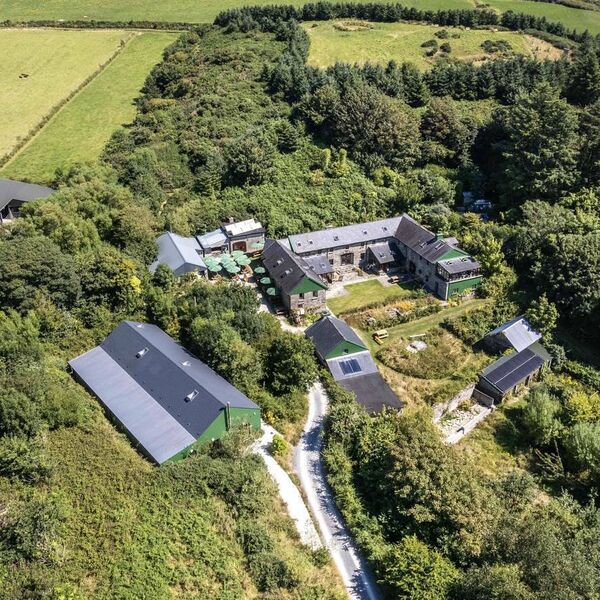
‘Idyllic’ is a very apt way to describe life in the part of the world she now calls home, surrounded by nature and with panoramic views over Clonakilty Bay. Recent additions include walkways and nature trails around the farm, allowing diners to get up close to the cattle and wildlife. Buzzards, peregrines and kestrels are spotted regularly, and dusk brings occasional sightings of owls.
Vic and Deborah bought Camus Farm in 2006. Deborah told me that Vic, who’s English, couldn’t cope with living inland in the Curragh, being landlocked – he needed to be beside the sea.
“He was still working in England at the time, so the criteria was that it had to be within an hour of an airport, we wanted to be beside the sea, it had to have a Gaelscoil because our daughter was in a Gaelscoil at the time, she was in a Gaelscoil on the Curragh before we moved down,” she said. “We ended up in Clonakilty the weekend that Cork won the All-Ireland and Clonakilty won a gold in a Tidy Towns, so it was a savage weekend! And we both went 'yeah, really, really like the vibe here'... we said we'd take a chance. We moved down two days after we got married.”
Down in Clonakilty, an “extraordinary” place where you can’t throw a stone “without hitting either an artist or a writer or a poet or a musician”, Deborah wears three different hats – working as an art therapist and an artist, and running the restaurant.
With parents that were both creative, she was immersed in art from a very early age. Her “super” art teacher in the Holy Family in Newbridge encouraged her to apply for art college and she wound up attending Dún Laoghaire School of Art – today known as Dún Laoghaire Institute of Art, Design and Technology (IADT). Deborah, who worked as a community artist for 15 years, spent three years as an artist in residence in Co Kildare before moving to Cork.
“I ended up working in the Education Centre teaching teachers the new arts curriculum and then through that I met another artist called Monica de Bath who is based in Rathangan, and we ended up devising and working on this project called 'Guth an Phortaigh' which is 'Voice of the Bog',” she said. “We got funding for three years from the Arts Council to work in the schools and then eventually we worked in a collaboration with Peatland World out in Lullymore and we did a big art installation out there working with the community… we worked with schools and different community groups for just over three years.”
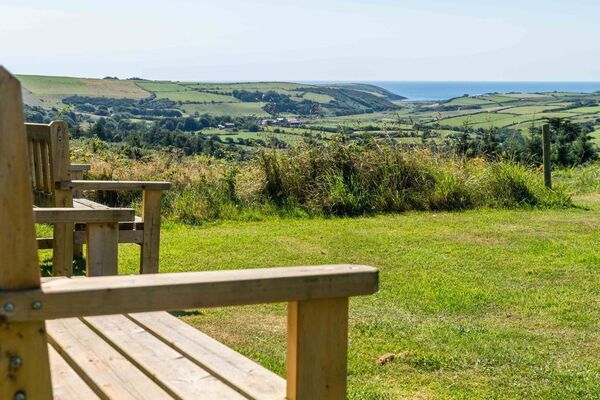
The farm near Clonakilty is named for the townland rather than the French philosopher. When they first moved down that neck of the woods, Vic was still commuting over and back to England, but he sold his company and that gave them an opportunity to buy where they are now. They began with four acres and extended it to 30.
“He’d always had a grá for farming,” Deborah said of her other half. “He had been working in industry, he’s a nuclear physicist. There’s not a huge call for that in Ireland and he knew he really wanted to get back into farming, so that’s how we ended up buying this place.”
The concepts of sustainability permeates everything Vic and Deobrah do down in the Rebel County. Camus Farm is licensed with the Irish Organic Association and now all produce supplies the restaurant. An acre is dedicated to horticulture growing salad and vegetables.
They serve seasonal food which, as much as possible, they produce on-farm. Their set menus (carne, veggie, vegan) are determined by what is in season. This supports their Zero Food Metres and Zero Food Waste ethos.
Water is drawn from the on-farm well, while solar thermal panels contribute to their hot water and solar photovoltaic panels to their electrical power. A large log-burning stove using farm-grown firewood provides the heating over winter.
The table flowers are all grown on the farm, meaning the venue has zero flower miles too. The small amount of food waste generated by the restaurant is composted on-farm and used to improve their soils.
“Our farm is a way of living,” Deborah said. “It's trying to be as sustainable and living in sympathy with the environment rather than battling against it.”
To learn more about what they’re doing down in Clonakilty, or to get in touch, visit fieldkitchen.ie.
